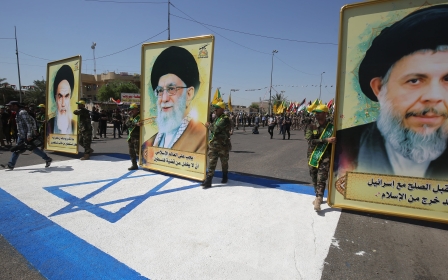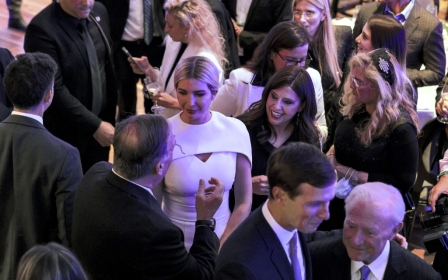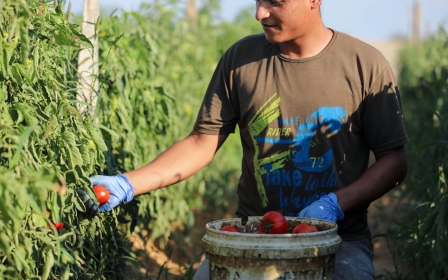Majority of Israelis dismiss likelihood of peace with Palestinians: Survey

Most Israelis see a slim chance of reaching peace with Palestinians in this decade and believe that politicians who called for a military attack on Iran to halt its nuclear project were right.
According to a survey by Israel Democracy Insitute, 87 percent of Israelis, including Palestinian citizens of Israel, believe that in the next five years, the possibility of establishing peace with Palestinians is very low.
New MEE newsletter: Jerusalem Dispatch
Sign up to get the latest insights and analysis on Israel-Palestine, alongside Turkey Unpacked and other MEE newsletters
The priorities of Jewish Israelis focused instead on internal issues, with 35 percent saying that stabilising the economy ranked at the top of their interests.
Meanwhile, reaching a peace agreement with the Palestinians was at the bottom of their list of priorities, with only 8.5 percent on the left of the political spectrum, 6 percent on the centre and 1 percent on the right saying such a deal was a prime concern.
The survey, which included 756 interviewees, revealed that 53 percent of Palestinian citizens of Israel rated fighting crime and the spread of weapons in towns inside Israel as their priority, and an issue they would like to see resolved by next year.
The majority of Israelis, at 45 percent, thought that those who supported a military strike on Iran's nuclear facilities during the early stages of its programme were right, while 27.5 percent believed that reaching a deal with Iran, to prevent it from developing a nuclear capability, is the right path for the government to take.
Of those surveyed, 47 percent believe that there is little chance that Israel would be nuked by Iran in a military confrontation, compared with 37 percent who think that such a scenario is highly likely.
Meanwhile, 61 percent of Israelis think that normalisation deals with Bahrain and the United Arab Emirates, signed in September 2020, had met their expectations.
Middle East Eye delivers independent and unrivalled coverage and analysis of the Middle East, North Africa and beyond. To learn more about republishing this content and the associated fees, please fill out this form. More about MEE can be found here.





